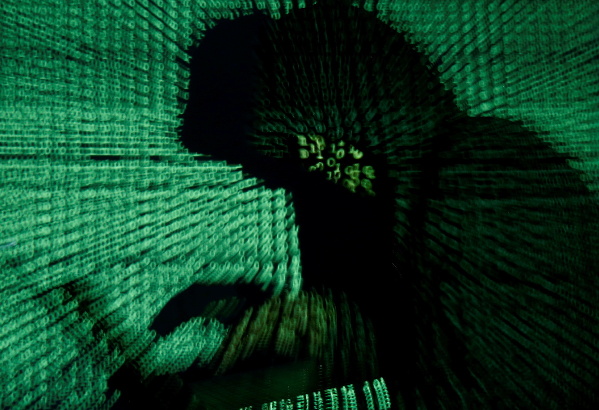
Washington together with its allies has accused China of responsibility for a number of cyber attacks against private entities in the West, in yet another move to smear the Asian country.
The cyber attack charges, along with other baseless accusations such as those against China's human rights records, are simply an old political trick played from time to time by a small group of Western countries obsessed with demonizing China and containing its development. What these countries don't realize is that political rumormongering will only hinder the world's efforts to bolster cybersecurity.
To set the record straight, Beijing's position on cybersecurity is consistent and clear.
China, as a staunch defender of cybersecurity, opposes all forms of hacking activities in cyberspace and stands ready to work with the rest of the world to promote global cybersecurity.
Last year, China proposed the Global Initiative on Data Security and called on states to handle data security in a comprehensive, objective and evidence-based manner.
The gravest threat to global cybersecurity is the United States, a country that abuses its unmatched technological power.
For quite some time, Washington has conducted a broad array of large-scale, organized and indiscriminate cyber stealing, spying and surveillance activities on foreign governments, enterprises and individuals.
Those acts, most of which were masterminded by the U.S. National Security Agency and the Central Intelligence Agency, are against international law and basic norms of international relations. With such surveillance programs as the Prism Project, Equation Group and ECHELON being exposed one after another in recent years, there is little doubt around the world that the United States has built itself into an empire of hackers.
One recent incident raised eyebrows across Europe in late May before U.S. President Joe Biden's first visit to the continent since he took office. The Danish Defense Intelligence Service had reportedly given the National Security Agency open internet access to spy on senior politicians of neighboring countries, including German Chancellor Angela Merkel.
What irony it is that the United States, posing a grave threat to global cybersecurity, is commanding the allies it spies on to slander China.
In fact, China has long been a victim of U.S. cyber attacks. Most of the internet attacks targeting Chinese networks last year originated from the United States, according to an annual report released by China's National Computer Network Emergency Response Technical Team/Coordination Center in May.
Chinese antivirus firm Qihoo 360 also revealed last year that Central Intelligence Agency hackers have engaged in an 11-year-long cyber infiltration and attack program against China's aviation sector, scientific research organizations, internet companies and government agencies.
Cybersecurity is a global challenge that must be handled collectively.
While politicizing the issue or throwing mud at China will not help make global cyberspace safer, those moves will chip away at trust among nations worldwide and hinder global cooperation.
Washington and its Western allies should drop their Cold-War mentality and take a professional, responsible and cooperative attitude towards cybersecurity. And that must start with stopping groundless attacks against China.
















